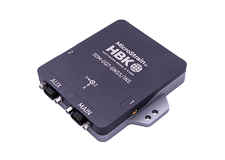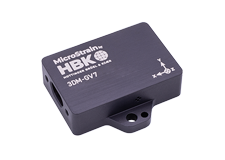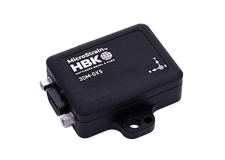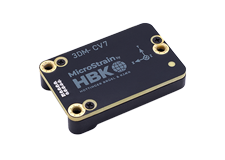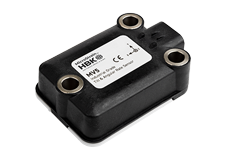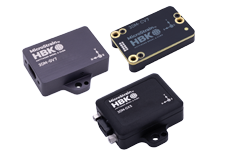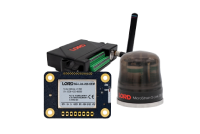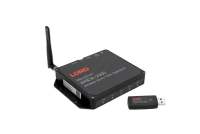Torque-Link-200 Rugged Wireless Torque/Strain Sensor Node, 1-Channel
Transform standard driveshafts into wireless torque transducers by application of one strain bridge. The node supports high resolution, low noise data collection from 1 differential input channel at a sample rate up to 1 kHz. An integrated hall effect sensor enables reporting of RPM and total pulses allowing for the derivation of real-time power in torque applications.
Product Highlights
- Two to six inch diameter shaft (standard), more sizes available on request
- One differential input channel (standard) for full-bridge strain gauge integration (two channels optional)
- Ideal for static and dynamic torque measurements with full temperature compensation and bending cancellation
- Alternative gauge configurations enable axial and bending measurements
- Rugged ABS housing designed for remote, long-term installation on cylindrical shafts
- Application-specific designs available on request
Specs
|
General |
|
|---|---|
|
Sensor input channels |
Differential analog, 1 channel (standard), 2 channels (optional) , 1 RPM/pulse |
|
Integrated sensors |
Internal temperature, 1 channel |
|
Data storage capacity |
16 M Bytes (up to 8,000,000 data points) |
|
Analog Input Channels |
|
|
Selectable measurement ranges |
±19.5 mV to ±2.5 V |
|
Single-ended input impedance |
1 Mohm |
|
Resolution |
24-bit |
|
Digital filter* |
Configurable SINC4 low pass filter for reducing noise |
|
Bridge excitation voltage |
Configurable: 1.5 V or 2.5 V (100 mA) |
|
Measurement gain and offset |
1 to 128 |
|
Integrated Temperature Channel |
|
|
Measurement range |
-40 to 105° C |
|
Accuracy |
±0.25° C |
|
Sampling |
|
|
Sampling modes |
Continuous, periodic burst, or event triggered |
|
Sampling rates |
Up to 1024 Hz |
|
Sample rate stability |
±5 ppm |
|
Network capacity |
Up to 127 nodes per RF channel depending on settings. See: |
|
Synchronization between nodes |
± 50 μsec |
|
Operating Parameters |
|
|
Wireless communication range |
Line of sight: 1 km (ideal), 400 m (typical); Indoor/obstructions: 50 m (typical) |
|
Radio frequency (RF) transceiver carrier |
License-free 2.405 to 2.480 GHz with 16 channels |
|
RF communication protocol |
IEEE 802.15.4 |
|
Power source |
High performance: 1.5 V Lithium AAA (L92) recommended; Lower performance: Alkaline AAA -decreased temperature range and battery life |
|
Power consumption |
Configuration dependent (see user manual) |
|
Operating temperature |
-40°C to +60°C |
|
Angular acceleration limit |
500g sustained, 1000g intermittent |
|
Maximum RPM |
Operating condition dependent (see user manual) |
|
Physical Specifications |
|
|
Dimensions |
See Datasheet table |
|
Environmental rating |
IP 66, tested to DO-160 standards for temperature variation, humidity, and vibration |
|
Enclosure material |
ABS thermoplastic |
|
Integration |
|
|
Compatible gateways |
All WSDA gateways |
|
Software |
SensorCloud™, SensorConnect™, Windows 7, 8 & 10 compatible |
|
Software development kit (SDK) |
|
|
Regulatory compliance |
FCC (U.S.), IC (Canada), CE (European Union), ROHS |
Documentation
General Documentation
Downloads
Video
Software
SensorConnect
Free
SensorConnect is the next generation in desktop sensing software.
From configuration of nodes and starting networks, to collecting and analyzing data in real-time, SensorConnect provides a modern, powerful experience with our Wireless, Inertial, and Displacement products.
Using our intelligent data collection and graphing algorithms, you are able to visualize massive amounts of data instantly, and then zoom in on points of interest just as fast.
Built in MathEngine functionality allows for both real-time and post-processed math, such as generating FFTs, averages, RMS, etc.

SensorCloud™
Free and paid plans available
SensorCloud is a unique sensor data storage, visualization, and remote management platform that leverages powerful Cloud computing technologies to provide excellent data scalability, rapid visualization, and user programmable analysis.
LORD sensors can instantly upload their data to SensorCloud via an ethernet-connected WSDA-2000. Once uploaded, your data is securely stored in the Cloud and can be accessed from anywhere, or downloaded for offline use.
Configurable alerts can be set to help notify you of real-time event in your data.
MathEngine allows you to perform analytics on your data, all in the Cloud. Pre-built functions are available for ease of use, while IPython Notebooks allow advanced users to write custom scripts to be run on their data once, or on a schedule.

{MSCL}
Free and open source API
The MicroStrain Communication Library (MSCL) makes it simple to write code that interacts with our Wireless, Inertial, and Displacement sensors.
MSCL is completely open source and hosted on GitHub under the MIT license.
Full documentation, example code, and a quick start guide are provided to help you get started.
Available for C++, Python, and .NET.

